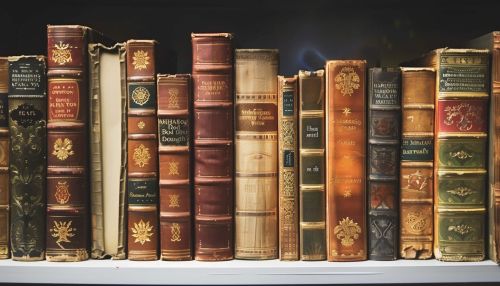World Literature
Introduction
World literature is a term used to refer to the literary works that are considered significant and influential in the global context. This includes works from different cultures, languages, and time periods that have had a profound impact on the literary world. The concept of world literature is closely tied to the processes of globalization and the spread of ideas and narratives across national and cultural boundaries.


History
The term "world literature" was first coined by the German writer and statesman Johann Wolfgang von Goethe in the early 19th century. He used the term "Weltliteratur" to describe the international circulation and reception of literary works in Europe. Goethe envisioned a new era of literary understanding where readers would enjoy and appreciate works from different parts of the world, transcending national and linguistic boundaries.
The idea of world literature has evolved over time, with different interpretations and definitions emerging in various academic and literary contexts. In the 20th century, the advent of postcolonial studies and translation studies has significantly influenced the understanding and study of world literature. Today, world literature encompasses a wide range of texts from different cultures, languages, and genres, reflecting the diversity and complexity of the global literary landscape.
Characteristics
World literature is characterized by its diversity and inclusivity. It includes works from different cultures, languages, and genres, reflecting the richness and complexity of the global literary landscape. This includes not only the canonical works of Western literature, but also the literary traditions of Asia, Africa, Latin America, and other parts of the world.
Another key characteristic of world literature is its focus on translation. As world literature encompasses works from different languages, translation plays a crucial role in making these works accessible to a global audience. This has led to the emergence of translation studies as a key field in the study of world literature.
World literature also emphasizes the interconnectedness of different literary traditions. It explores how ideas, themes, and narratives travel across cultural and national boundaries, creating a global network of literary exchange. This aspect of world literature is closely tied to the processes of globalization and the increasing interconnectedness of the world.
Major Works and Authors
World literature includes a wide range of works from different cultures, languages, and genres. Some of the most influential and widely read works in world literature include:
- "The Divine Comedy" by Dante Alighieri: This epic poem from the 14th century is considered one of the greatest works of world literature. It is a profound exploration of the Christian afterlife, filled with rich symbolism and allegory.
- "Don Quixote" by Miguel de Cervantes: Often considered the first modern novel, "Don Quixote" is a seminal work in the Western literary tradition. It tells the story of a man who, driven mad by reading too many chivalric romances, decides to become a knight-errant and seek adventure.
- "One Hundred Years of Solitude" by Gabriel Garcia Marquez: This novel is a masterpiece of magical realism, a genre that blends realistic narrative with fantastical elements. It tells the story of the Buendia family over seven generations, set against the backdrop of the fictional town of Macondo.
- "Things Fall Apart" by Chinua Achebe: This novel is a powerful critique of colonialism and its impact on African societies. It tells the story of Okonkwo, a respected warrior in the Igbo tribe of Nigeria, and his struggle to adapt to the changing world.
Impact and Influence
World literature has had a profound impact on the literary world, influencing the way we read, interpret, and understand literature. It has broadened the literary canon, incorporating works from different cultures, languages, and genres. This has led to a more inclusive and diverse understanding of literature, reflecting the richness and complexity of the global literary landscape.
World literature has also influenced the field of literary studies, leading to the emergence of new disciplines and approaches. This includes postcolonial studies, which examines the impact of colonialism on literature and culture, and translation studies, which explores the role of translation in the global circulation of literary works.
See Also
Globalization and its impact on literature The role of translation in world literature The impact of colonialism on literature
